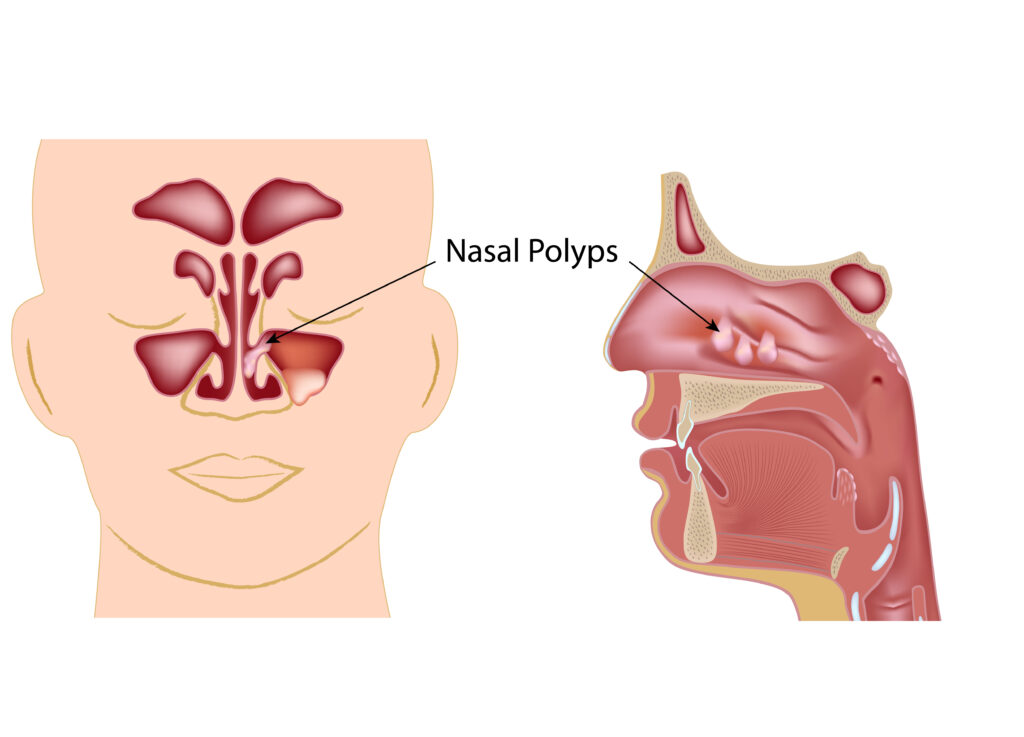Understanding Nasal Polyps

Nasal polyps are noncancerous growths that develop in the lining of the nasal passages or sinuses. While they are generally harmless, they can cause significant discomfort and disrupt normal breathing. In this blog post, we will explore the causes, symptoms, and available treatment options for nasal polyps.
 Causes and Risk Factors
Causes and Risk Factors
The exact cause of nasal polyps remains unclear, but they are often associated with chronic inflammation of the nasal passages and sinuses. Some common risk factors include allergies, asthma, frequent sinus infections, and aspirin sensitivity. Genetic factors and certain underlying medical conditions, such as cystic fibrosis, may also increase the likelihood of developing nasal polyps.
Symptoms
Nasal polyps can lead to various bothersome symptoms, including persistent nasal congestion, reduced sense of smell, postnasal drip, facial pain or pressure, and a runny nose. In some cases, they may contribute to sleep disturbances, chronic sinus infections, or even affect the sense of taste. The size and number of polyps can vary, resulting in a range of symptoms and severity.
Treatment Options
Treatment for nasal polyps depends on the severity of symptoms and their impact on daily life. Mild cases may be managed with nasal corticosteroids or oral medications to reduce inflammation. For more severe cases or those resistant to medication, surgical removal of the polyps may be necessary to alleviate symptoms and improve breathing.
Nasal polyps can cause significant discomfort and interfere with normal nasal function. Recognizing the causes, symptoms, and available treatment options is crucial for managing this condition effectively. If you suspect nasal polyps, it is recommended to consult with a healthcare professional for proper diagnosis and personalized treatment recommendations.

